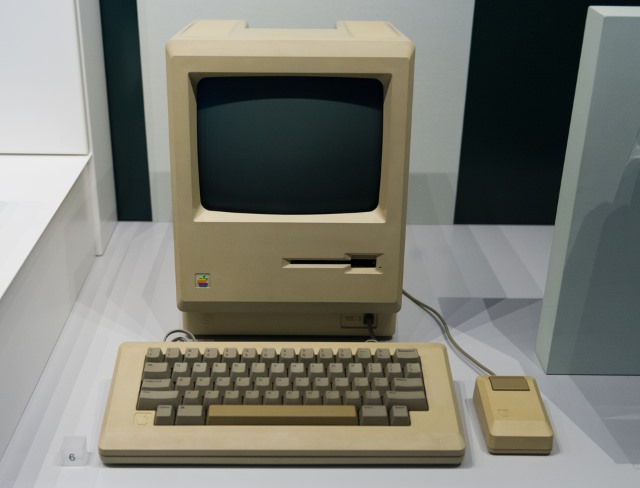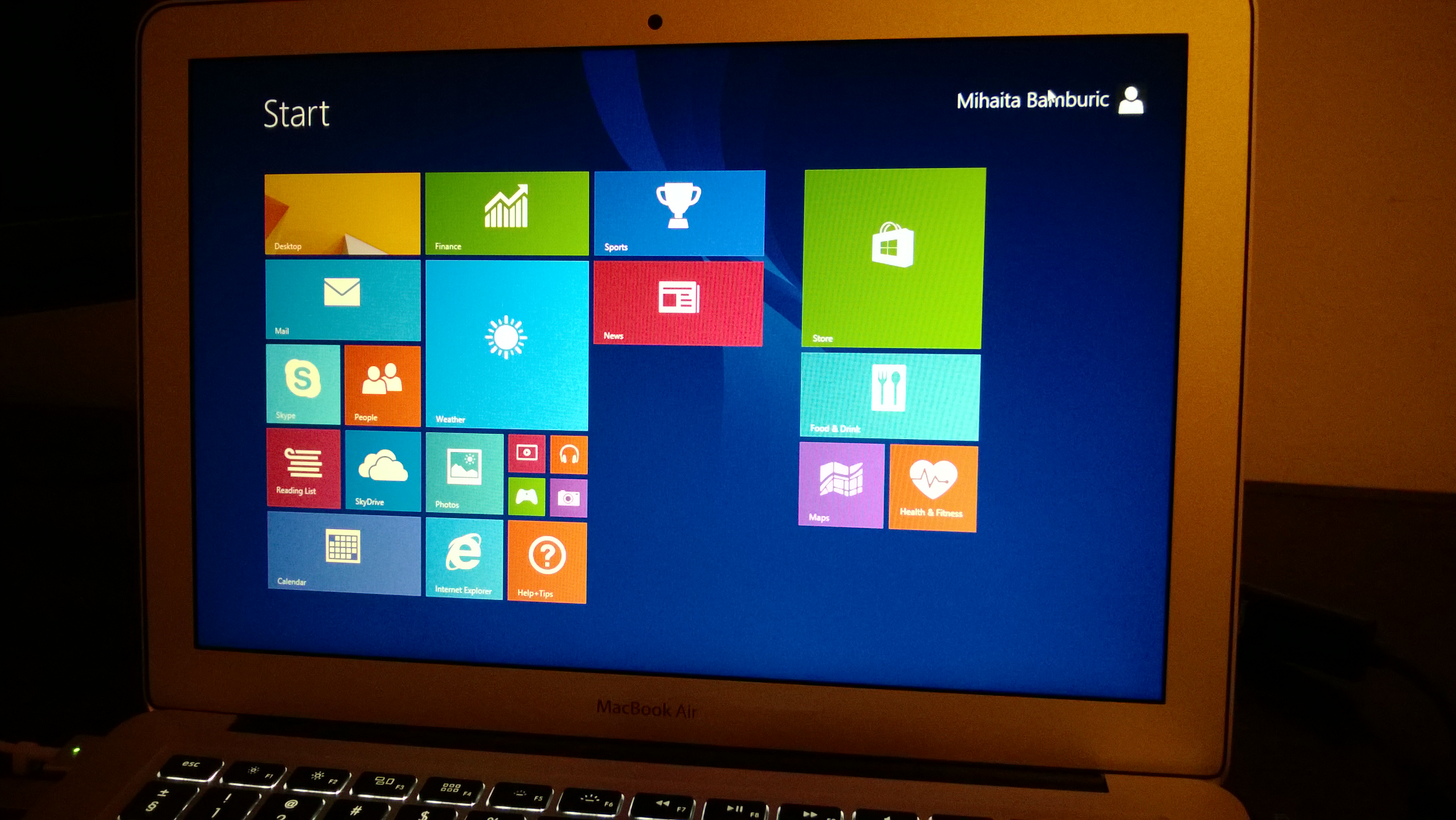The reasons for this are probably two fold. One, Apple has a higher degree of control over the hardware design of its systems leading to a generally more stable product. Two, OSX’s UNIX base (which has been under development a lot longer than Windows) and UNIX security model lead to a much more stable operating system. You won’t have the virus and spyware problems you are probably use to by now on Windows.
Photo and video maker software download. Third, Apple’s core strength is content creation. Mostly people use a computer to create something else not just to play with the the computer itself. This is where Apple and OSX excel. In general, Apple systems come out of the box with more features and programs for creating content than any other system. There is a reason why most bands use Pro Tools on OSX to create their music, why every print application is created with Adobe Photoshop and Indesign on OSX, and why a lot of video is produced with Final Cut on OSX. Apple’s OSX just does a better job of helping to create and manage content.
Pro’s
- Easier to use for the non technical.
- Content creation is its strength.
- More secure than Windows due to its UNIX base
- More stable than Windows due to Apple’s tighter control over the configuration options and its UNIX base.
- Almost no spyware or virus applications.
- More powerful than Windows due to its UNIX base.
- You have almost complete access to the enormous library of free open source applications.
Con’s
Windows And Linux Pc
- More expensive upfront than other choices. Some would say this is offset by less maintenance required over the life of the system.
- Less support. You have to goto Apple for all your hardware problems.
- Less hardware choices than Windows. For your average user this isn’t much of a problem. All the common hardware types will work.
- More complex than Windows due to its UNIX base. This really isn’t a major con because OSX does a great job of hiding this complexity from the end user.
Third we have Linux. It’s all about choice man.
I know what you are thinking. Isn’t Linux that command line operating system my 15 year old and the technical support people at work rave about? That’s way too much of a learning curve for me. Well, that is true but, Linux also is that user friendly cable box under your T.V., that kiosk in the mall that tells you where the GAP is, and the operating system that runs your TomTom GPS navigation system in your car. Odds are you are already using Linux and don’t even know it.
For a long time Linux has had a two faced image problem. At one end you have the appliance like consumer gadget market that is using Linux to make extremely easy to use consumer electronics like your Tivo or TomTom. On the other end you have the majority of the world’s top ten super computers that also run Linux. It is this end that has gotten most of the main stream media attention over the years.
Linux still has room in the middle of these two extremes for you. Even here there are two ends of spectrum. At the low end, you have systems like the Asus Eee PC which, by default, runs a restricted version of Linux that even your grandmother can use. At the other end you have the web server that served you this page. You also have every option in between.
Typically you are going to want a Linux distribution (of which there are many) that approximates the ease of use of Windows and OSX. For the last couple of years the most popular choice has been Ubuntu. Ubuntu’s main focus, since its inception, has been to make Linux easier to use for the masses and I’d have to say, they have done a great job. If you have ever used a computer before then it won’t take you very long to get up to speed in Ubuntu. One of the great advantages of Linux over Windows or OSX has been its lower hardware requirements. If your current computer is less then five years old then I can pretty much guarantee that it will run Linux. Maybe not with all the fancy graphic options but, it will be usable.
Another great advantage of Linux is that you can try it on any hardware without actually installing it by using a live CD. With a live CD, you can run Linux on your current computer just by booting off the CD. The operating system is loaded into memory and run off the CD and it won’t affect anything else on your system. When you are done testing, you simply take the CD out of your drive and reboot. Go get the Ubuntu Live CD here and check it out. Of course, Ubuntu isn’t your only choice. Google Linux Live CD and check out the other options.
Pros
- Runs on just about any hardware. It is a misnomer that Linux lacks the driver support of Windows and OSX. Linux actually has the broadest driver support of any system. I don’t see Windows running on your TomTom. What is true, is that the latest and greatest hardware doesn’t come to Linux first if the manufacture choose not write Linux drivers. For most things this isn’t a problem for the same reason it isn’t a problem for OSX. Just be aware of the issue before running out to buy the latest add on.
- More options than any other system. This is a pro and a con. If you want to change anything in Linux you can. The only limiting factor is your desire to figure out how.
- Way more secure than Windows XP and even OSX.
- Everything is free. Although please donate a little something to your favorite projects.
- If you choose to, you can always be on the cutting edge of computer science. All the new ideas in development on college campuses across the world are tried on Linux first and then the best of those filter down to Apple and Windows but, what’s best is subjective so Linux leaves you with a choice, while Apple and Windows limit you.
- Full access to the free open source library of software. Great full featured, compatible, and free replacements for your proprietary software.
- Linux management, for example patch management, is much easier. Typical one command or wizard has to be invoked in order to update everything vs. Windows where you have to get OS patches from Microsoft and third party patches from each individual vendor.
Cons
- The latest and greatest hardware is typically slower to reach Linux.
- The shear number of options can be daunting to a non-technical user. Although, like OSX, the distribution you select will determine the level of complexity presented or hidden from the end user. For instance, my mom would have no problem using Ubuntu but, only the uber techies among us would opt for the Gentoo Linux distribution.
- Limited support for proprietary applications. Although you can use Microsoft Office for Windows on Linux by using an open source version of the Windows application programing interface called WINE, I wouldn’t recommend it for the non-technical user. Instead use Open Office, which comes with the Ubuntu distribution, for creating documents compatible with Microsoft Office.
- Limited vendor support. This is getting better. Dell now offers systems with Ubuntu pre-installed and those sub $300 Walmart PC’s that they couldn’t keep in the stores were from Everex. As for software support, even though this is under cons, I can’t really say this is a bad thing. In 20 years Microsoft has never answered a question when I have bothered to call them. I may spend hours searching their knowledge base to find an answer to my question. On the other hand, Linux has a massive community of people willing to help. A quick search of the Ubuntu forums will generally reveal an answer, and if not, then a quick post to the forum normally gets a response.
Basically, for all its pros and cons, Linux comes down to choice. If you can think it, you can probably do it.
So which OS is the best?
Linux And Windows 10
Like I said at the beginning of this article it depends on your usage. If you want to be compatible with the office and play games, it is Windows. If you do nothing but content creation all day long, want general compatibility with the office, or are a less technical user, than it is OSX. Finally, if you have a budget, need both a restricted system for one user and a powerful system for another but, it has to be the same computer, than it is Linux.
Each one has it best use. I’m a perfect example. I wrote and developed this web site on OSX. I have a Mac Mini in my bedroom that I used to watch movies. I also have my entire home automation system running on OSX.
Then there is Linux. I have a Linux based VOIP (Voice Over IP, think vonage) server running my home phone, a Linux based DVR recording my T.V. and a Linux based file server to back it all up.
Finally, there is Windows. Well, I use Windows at work. I have a XBox for video games.
Compare Windows Apple And Linux
Easy enough?


